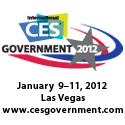
Meet Kelly O’Connor the President of Efiia Cares. O’Connor has over fifteen years of management experience leading IT programs with a focus on private sector (Fortune 50) strategic IT initiatives and large-scale government programs. She was a founding member of Deloitte’s Federal Consulting Practice in 2002 and has published research and proprietary IT solutions for Harvard University’s Government Innovators Network, Gartner and Deloitte. Kelly is a former New York City high school teacher; she holds a BA from Fordham University and graduate degrees from Columbia University (MA) and New York University (MBA).
O’Connor is passionate about veteran-related issues, she spoke to WashingtonExec recently about Effia Cares, mobility and the Veteran Fellowship Program.
WashingtonExec: In the age of information technology (IT), the term “mobility” means different things to different people. What does the term “mobility” mean for you?
Kelly O’Connor: I view mobility as a generic term used to refer to a variety of easily portable devices that enable users to access data and information from any location. More importantly, “mobility” encompasses more than just mobile app development, even though that’s one of the most interesting—and fun—components of mobile. Our approach to mobility includes the other more complex components such as security, privacy, data management, application management, user experience, mobile device management, trusted app stores, government procurement practices, and building the business case for mobile.
though that’s one of the most interesting—and fun—components of mobile. Our approach to mobility includes the other more complex components such as security, privacy, data management, application management, user experience, mobile device management, trusted app stores, government procurement practices, and building the business case for mobile.
Mobile technology is evolving quickly. Government agencies need to make sure their mobile strategy enhances mission capabilities, saves money and complies with policy requirements. That’s hard, given some of the unique constraints of government such as security and privacy requirements, capital planning cycles, legacy infrastructure and devices and, of course, shrinking budgets.
WashingtonExec: What do you think will be the biggest challenge companies will face when they start trying to incorporate mobility solutions into the workplace?
Kelly O’Connor:There are two challenges we’re seeing with all of our government partners: 1) developing an enterprise strategy for mobile, and 2) building the business case for mobile.
From our viewpoint, right now it’s the wild-wild west for mobility. With more than 200 government mobile “pilots” – some sanctioned, some not – agencies are caught between a never-ending waiver process and a fragmented approach to a mobile strategy. Anyone can build a mobile app…that’s the easy part, but getting pilots to a production environment and effectively scaling them from 100 or so users—to tens of thousands of users—is very difficult.
No matter where agencies are in the capital planning or system development lifecycle processes, we can serve as a full-service mobile program management office (mPMO). We are dedicated to helping clients realize the mission results and cost benefits that can come from mobile computing.
We’re not worried about developing the next cool mobile app—I’m sure that’s the not the most exciting mobile tagline for a company, but for us it’s true.
WashingtonExec: How is the Veteran Fellowship Program different from other veteran employment programs?
Kelly O’Connor: I want to stress the fact that this program is run out of our non-profit (501c3), Efiia Cares. I think Efiia Cares is one of the best things, and a real differentiator, for our firm. It’s one of the reasons I love my job. It also enables us to make some of our solutions (such as our mobile strategy workshop) freely available to the government and non-profit community.
The Efiia Cares “Veteran Fellowship Program” is similar to an executive MBA program whereby big companies hire former veterans and provide some schedule flexibility so that fellows can attend school part-time. Our program is restricted to former enlisted veterans only, so we can help the private sector tap into this talent pool in the easiest most cost-effective way possible—and fellows can take advantage of the GI Bill, while getting high-quality experience at some of the top firms in the country. We’ve got some great partners onboard for a one-year pilot program including Booz Allen Hamilton, CSC, Orion International and Career Builder—all of whom are participating on a pro bono basis for the pilot. Our pilot team is going to develop a scalable, repeatable program model (based on the results of our pilot program) that we will roll out nationwide in late 2012.
Veterans don’t want a hand-out; they want good jobs. We recognize the growing number of programs that support veteran employment, but The Efiia Cares Veteran Fellowship Program is unique for the following three (3) reasons:
- We target former enlisted veterans for high quality, long-term executive management career opportunities.
- We take a more integrated approach to veteran employment and education.
- We provide intensive support and training for one year to fellows.
WashingtonExec: What do you love most about your job?
Kelly O’Connor: I love the flexibility to do the non-profit work that I care about…and our Efiia team. I feel very lucky to be part of this team.
WashingtonExec: What book has made the biggest impact on your life? Why?
Kelly O’Connor: Howard Zinn’s A People’s History of the United States because you realize that history is like a prism—depending on who you are and your perspective, historical events can have very different interpretations.

